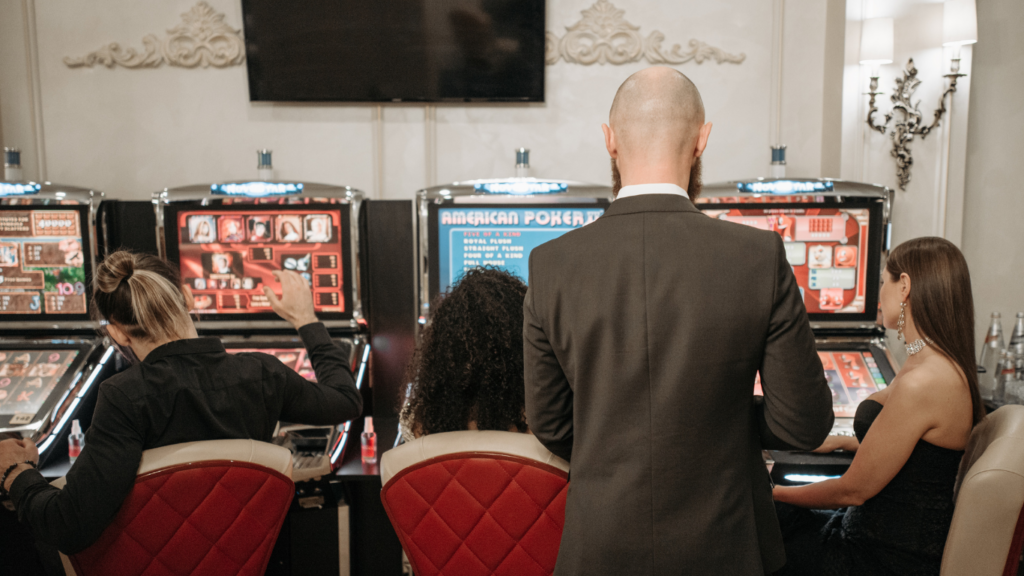Understanding Slot Machine Jackpots
Slot machine jackpots represent the enticing promise of life-changing wins. I find they operate on two main types: standalone jackpots and networked jackpots. A standalone jackpot ties to a single machine, so payouts depend on that machine’s performance. In contrast, networked jackpots, or progressive jackpots, pool contributions from multiple machines. These jackpots grow over time, sometimes reaching millions of dollars.
Random Number Generators (RNG) play a crucial role in how slot machines function. An RNG ensures every spin’s outcome is:
- independent
- random
- fair
Even if a machine recently paid out a jackpot, my research shows this doesn’t affect the next spin’s chances. Each spin retains an equal opportunity for hitting the jackpot.
Payout percentages, or Return to Player (RTP), indicate the average amount a machine returns to players over time. For instance, a machine with a 95% RTP returns $95 for every $100 wagered, on average. RTP doesn’t predict short-term outcomes but provides insight into long-term performance. I recommend checking a machine’s RTP to understand its potential payouts better.
Betting strategies don’t guarantee a win but can influence jackpot eligibility. Some jackpots activate only with maximum bets. By understanding these requirements, you play more strategically. Knowledge of a machine’s rules and payout structure improves your overall gaming experience.
Common Myths About Slot Machine Jackpots

Misconceptions about slot machines can lead to misplaced strategies and disappointments. It’s essential to debunk these myths to enhance your gameplay experience.
Myth 1: Slot Machines Are Rigged
Many believe slot machines are rigged to prevent wins. In reality, licensed casinos use Random Number Generators (RNG) to ensure each spin’s outcome is random and independent of past results. Regulatory bodies monitor these RNGs to maintain fairness and transparency in gaming.
Myth 2: A Machine Is Due for a Win
Some players think a machine that hasn’t paid out recently is due for a jackpot. However, each spin operates independently due to RNG technology, so past results don’t influence future outcomes. This perception of a “hot” or “cold” machine doesn’t align with the actual randomness of slot machine operations.
Myth 3: Using Loyalty Cards Reduces Chances
There’s a common belief that using loyalty cards reduces your chances of winning, but this isn’t true. Loyalty cards track play frequency and rewards but don’t affect the machine’s payout mechanism. Casinos use these cards to reward frequent players, not manipulate outcomes.
The Truth About How Slot Machines Work
Slot machines attract players with their vibrant graphics and potential for high payouts. Beneath their alluring exterior lies a complex system that determines each spin’s outcome.
Random Number Generators (RNG)
Random Number Generators ensure that every spin on a slot machine is independent and random. Regulated casinos use RNGs to keep games fair, as RNGs generate unpredictable sequences, making it impossible for external entities to influence results. These systems continuously run through numbers even when machines aren’t actively being played. This randomness assures players that past spins do not have any bearing on future outcomes, negating theories that strategies or streaks can affect results.
Impact of Machine Design and Payout Percentages
Machine design and payout percentages play significant roles in slot outcomes. Each machine has an RTP, or Return to Player percentage, indicating how much of the total wagered amounts are paid back to players over time.
For example, a machine with a 95% RTP returns $95 for every $100 wagered in the long run, although results vary in the short term due to randomness.
Machine features and themes often entice players, but they don’t alter the inherent odds encoded within the machine’s software. Understanding these mechanics helps players make more informed choices, recognizing that despite variable designs, the core functionality remains consistent across machines.
Strategies for Playing Slot Machines
When approaching slot machines, informed strategies can enhance the gaming experience. While predictability isn’t possible, players can make strategic decisions that align with their preferences and budget.
Setting a Budget
I find it crucial to establish a gambling budget before engaging with slot machines. Allocating a specific amount ensures that enjoyment remains the focus without financial strain.
For example, dividing the budget into daily or session-based limits helps manage spending and prolongs playtime. Additionally, focusing on affordable stakes matches allows more spins, increasing the potential for hitting a jackpot.
It’s essential to stop once the budget depletes, maintaining control and avoiding overspending. By setting a firm boundary, players keep the experience enjoyable and financially responsible.
Choosing the Right Machines
Selecting the right slot machine involves understanding game types and payoff structures. I look at RTP percentages, as higher rates typically indicate better returns over time. Machines with higher RTP, such as those exceeding 94%, may provide more frequent wins, although no guarantees exist.
Another factor is variance levels: high variance machines offer larger but less frequent payouts, whereas low variance machines deliver smaller, more consistent wins.
Opting for machines with features that fit personal gaming goals—a blend of entertainment and potential payoff—can influence satisfaction levels. By considering these elements, players position themselves for a more rewarding gaming session.
The Psychology Behind Slot Machine Myths
Slot machine myths often arise from cognitive biases and misconceptions about randomness. Understanding these psychological factors helps clarify why certain beliefs persist despite evidence to the contrary.
- Illusion of Control: Many players think they can influence outcomes with specific actions, akin to superstitions in other areas. This belief in controlling unpredictable events fuels myths like a “hot” machine being due for a win.
- Confirmation Bias: Humans naturally seek patterns, leading to the confirmation of pre-existing beliefs even in random sequences. A few wins in a row might reinforce the idea that a particular strategy works, obscuring the reality of random chance.
- Gambler’s Fallacy: Players often assume past results affect future outcomes, which is common in games of chance. Believing a machine is overdue for a win exemplifies this fallacy, misunderstanding the independent nature of each spin.
- Reward Conditioning: The bright lights and sounds associated with wins elicit a sense of excitement. This stimulus-response relationship can reinforce myth-based behaviors, as players equate environmental cues with winning potential.
Identifying these psychological components unravels the persistence of myths about slot machines, promoting a more grounded understanding of their mechanics.



 Henry Stevenson
Content Strategist
Henry Stevenson is the Content Strategist at Jackpot Lucky Deal, bringing a rich background in gaming journalism and an eye for detail to every article and update. Henry’s primary focus is on delivering engaging, insightful content that helps readers understand the nuances of jackpot games, from slot machine strategies to tips on maximizing wins with responsible betting. Known for his ability to simplify complex topics and make them accessible, Henry has a knack for curating content that resonates with jackpot enthusiasts and newcomers alike. His role involves not only keeping readers informed about the latest news and trends but also crafting guides that support smarter, more informed gameplay. Through his work at Jackpot Lucky Deal, Henry aims to help players optimize their chances of winning while staying educated on safe betting practices.
Henry Stevenson
Content Strategist
Henry Stevenson is the Content Strategist at Jackpot Lucky Deal, bringing a rich background in gaming journalism and an eye for detail to every article and update. Henry’s primary focus is on delivering engaging, insightful content that helps readers understand the nuances of jackpot games, from slot machine strategies to tips on maximizing wins with responsible betting. Known for his ability to simplify complex topics and make them accessible, Henry has a knack for curating content that resonates with jackpot enthusiasts and newcomers alike. His role involves not only keeping readers informed about the latest news and trends but also crafting guides that support smarter, more informed gameplay. Through his work at Jackpot Lucky Deal, Henry aims to help players optimize their chances of winning while staying educated on safe betting practices.

